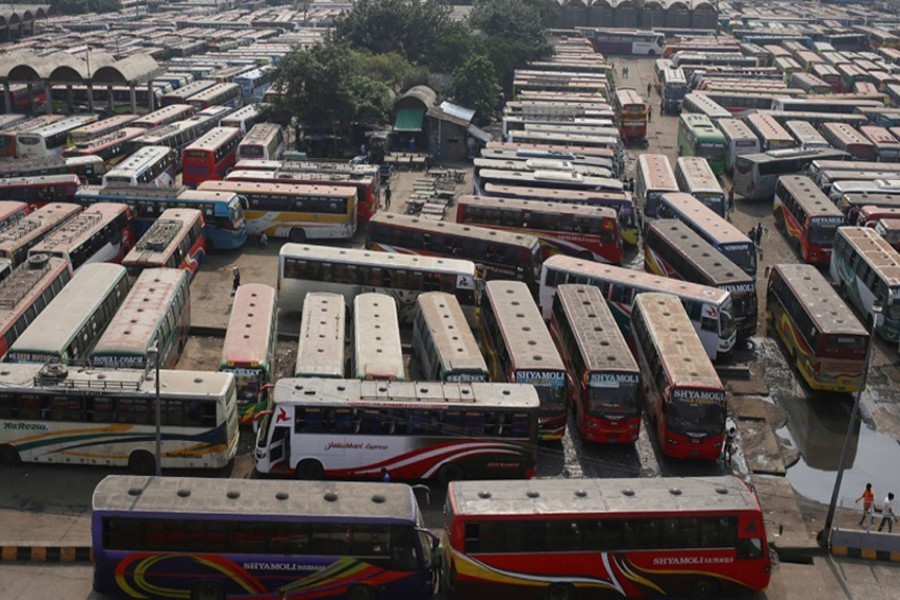Thousands of public transports, including buses and trucks, are now stranded at terminals and along the roads and highways across the country. Those have been rendered non-operational since the government enforced shutdowns on March 26 last as part of the measures to contain the Covid-19 outbreak.
But how are poor transport workers faring? Are they being able to make both ends meet during this period of shutdown? Most unlikely unless their employers (?) or so-called trade unions extend their helping hands.
The fact remains that transport workers do not have any regular employment. They are employed on daily-basis. The bus owners do always call the shot as the availability of bus drivers with or without valid licences is many times more than the market demand. A bus or truck driver, on an average, is employed for 15 days a month.
One of the main reasons for transport workers siding with the bus and truck owners is their abundant supply. There has been no single instance in recent years where transport workers have spoken a word against transport owners or waged any movement in support of any demand. Rather, even for wrong causes, they have always stood by transport owners. But how far their loyalty has rewarded them during these difficult days of shutdown? Possibly, nothing.
That transport workers are in real hardship and they are desperate to resume work have been highlight in stories run by both print and electronic media on the plight of transport workers. Transport owners are under no obligation to pay to irregular workers wages or any other fiscal benefit. Some owners might have extended help to a handful of workers, but most others have skipped the act of generosity.
But what about millions of taka collected as toll every month by so-called trade unions in the name of welfare benefits for transport workers? It is not known whether any help in the form of cash or kind has been made available to transport workers by the trade unions. If not, it will be very unfortunate. For trade unions have helped some of their leaders to reap maximum benefits, political or otherwise.
These leaders as well as some transport owners have been using their workers as pawns in meeting their evil ends. This has been possible because the vast majority of workers are illiterate and do not have valid driving licences. These deficiencies have made transport workers a weak force and transport owners and selfish trade union leaders want them to be so. In fact, owners and these leaders have formed a symbiotic relationship to achieve their own interests. Unfortunately, transport workers do fail to understand it. The treatment they have got this time from the transport owners and the trade union leaders should open their eyes, hopefully.


